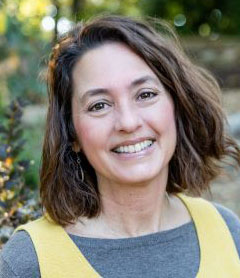Every two years, the Aspen Institute awards a $1 million Aspen Prize for Community College Excellence — what President Barack Obama described as “basically the Oscars for great community colleges.”
The 2021 winners were announced earlier this month. And lo and behold, Amarillo College — which I have spotlighted before — was recognized with a runner-up “Rising Star” award.
The first-place winner is another Texas institution, in the same city where I was born: San Antonio College (SAC), which serves predominantly part-time, low-income, and Hispanic students.
When I read more about why SAC has been so successful, I noticed the same theme that also animates Amarillo College, and that is:
Care.
Consider “CARE” our most important four-letter word — and inextricable from a relationship-rich culture, which I’ve obsessed about on this blog.
Both award-winning colleges “love students to success,” as Amarillo puts it.
Care should drive the design of Big Initiatives, as well as our small, individual interactions. No matter our role, we have an opportunity to strengthen our caring culture every day.
The Aspen profile of San Antonio College reads:
A culture of caring has become a hallmark of excellent community colleges. What distinguishes SAC are the ways the caring culture is undergirded by an unusually robust culture of inquiry and action — a remarkable balance of head and heart. Faculty and staff are equipped to effectively educate and guide their students, with clear expectations, strong analytical systems, and a commitment to ongoing improvement.
Throughout the college, leaders, faculty, and staff constantly analyze whether students are getting what they need — whether it’s math knowledge, child care, or useful information about their transfer destination — and adapt programs to meet the needs of their diverse student body. This commitment to continuous improvement yields results: In just five years, SAC’s graduation and transfer rate increased by almost 20 percentage points.
A culture of caring was also emphasized in a recent webinar hosted by the Hope Center for College, Community, and Justice — which was just the latest in the center’s 9-month series of #RealCollege inspirational webinars to support students experiencing basic needs insecurities. The full schedule, with video recordings of previous events, are available by scrolling to the bottom of this page.
The May 19 session focused on supporting parenting students — and Paula Umaña, who joined us during Virginia Western’s January 2021 in-service, stressed the importance of making parenting students feel welcome. We should pay attention to our language … and work to de-stigmatize seeking out support, whether it’s financial or academic. I can’t wait to hear more about Virginia Western’s Single Stop efforts, and how the entire college can work together to promote all of the government resources (SNAP, TANF, etc.) available to our students.
I’m also very excited about two Hope Center sessions happening within the next week:
1.
Designing for Care with Jesse Stommel of Digital Pedagogy Lab. There has been much talk over the last year about maintaining ‘continuity’ of instruction and assessment, but it’s even more important for us to talk about how we maintain the communities at the heart of our educational institutions. There is no one-size-fits-all set of best practices for building a learning community, whether on-ground or online. Right now, we should begin our efforts toward building community by designing for the students who need that community most, the ones most likely to have been feeling isolated even before the pandemic: disabled students, chronically ill students, students of color, queer students, and students facing housing and food-insecurity. Just last month, I stumbled onto this article about instructional design by Stommel, who emphasizes humanity, not technology. Wednesday, June 2, at 3 p.m. Register here (it’s free).
2.
Basic Needs Insecurity Among Virginia Community College System Students: In fall 2020, over 10,000 Virginia Community College System (VCCS) students — including Virginia Western students — participated in the Hope Center’s #RealCollege Survey. The survey assessed students’ basic needs security and their well-being, as indicated by employment status, academic engagement, and mental health. It also explored the impacts of the pandemic, which challenged VCCS students, faculty, and staff in new ways. Get a first look at the survey results and hear about the VCCS’s growing work to support students’ basic needs and achieve the state’s college attainment and equity goals. Webinar is Thursday, June 3, at 3:30 p.m. Register here.
*Free* professional learning opportunities
The Future Trends Forum: Discussions about the future of education and technology with writer/futurist Bryan Alexander. May 27: How can we enhance the academic opportunities for Black students? with Freeman A. Hrabowski, III, president of the University of Maryland, Baltimore County. June 3: How can colleges and universities better support equity by race? with Dr. Tia Brown McNair, Vice President in the Office of Diversity, Equity, and Student Success and Executive Director for the Truth, Racial Healing, and Transformation (TRHT) Campus Centers at the Association of American Colleges and Universities (AAC&U). More upcoming programs. Video recordings available on YouTube.
NSF Spring 2021 Virtual Grant Conference. Designed to give new faculty, researchers, and administrators key insights into a wide range of current issues at NSF. Program officers will be providing up-to-date information about specific funding opportunities and answering attendee questions. June 7-11. Registration is free.
Virginia’s Education Equity Summer Institute. June 15-17, 9 a.m. to 5 p.m. The Virginia Department of Education hosts this conference for Virginia educators, school leaders, education policymakers, and more. Breakout sessions and keynotes will include professional development to support Virginia’s recently expanded History and Social Science standards and the implementation of the new elective course in African American History for high school students that will launch this fall. June 15: Teaching Black History: Building Teacher Content Knowledge and Instructional Capacity. June 16: Teaching through Culturally Sustaining Pedagogies. June 17: Culturally Responsive and Inclusive Educator Practice at Four Critical Levels.
Bookmark the VCCS professional development website
Funding opportunities
- NSF: Robert Noyce Teacher Scholarship Program. Provides funding to provide scholarships, stipends, and programmatic support to recruit and prepare STEM majors and professionals to become K-12 teachers, especially in high-need school districts. Community colleges strongly encouraged to apply; however, it requires collaboration with K-12 and co-leadership with 4-year school. (due Aug. 31)
Grant starter kit
- Watch the video: 12 places to find grants
- Search Foundation Directory Online (for free through the Roanoke library)
- Email sseagle@virginiawestern.edu with questions and ideas!







 Shelley Lyons is glad to be back on campus as she is a Virginia Western alum, and has served as the Administrative Officer for Grants Administration at Virginia Western since early 2022. Prior to VWCC, her career focus was within the Human Services and Arts fields. She wrote her first grant in 1996 on a whim and has continued to plan and learn since that time. She most enjoys seeing a well-planned project come to fruition, where funder, project manager and beneficiaries can all feel success and see impact.
Shelley Lyons is glad to be back on campus as she is a Virginia Western alum, and has served as the Administrative Officer for Grants Administration at Virginia Western since early 2022. Prior to VWCC, her career focus was within the Human Services and Arts fields. She wrote her first grant in 1996 on a whim and has continued to plan and learn since that time. She most enjoys seeing a well-planned project come to fruition, where funder, project manager and beneficiaries can all feel success and see impact.